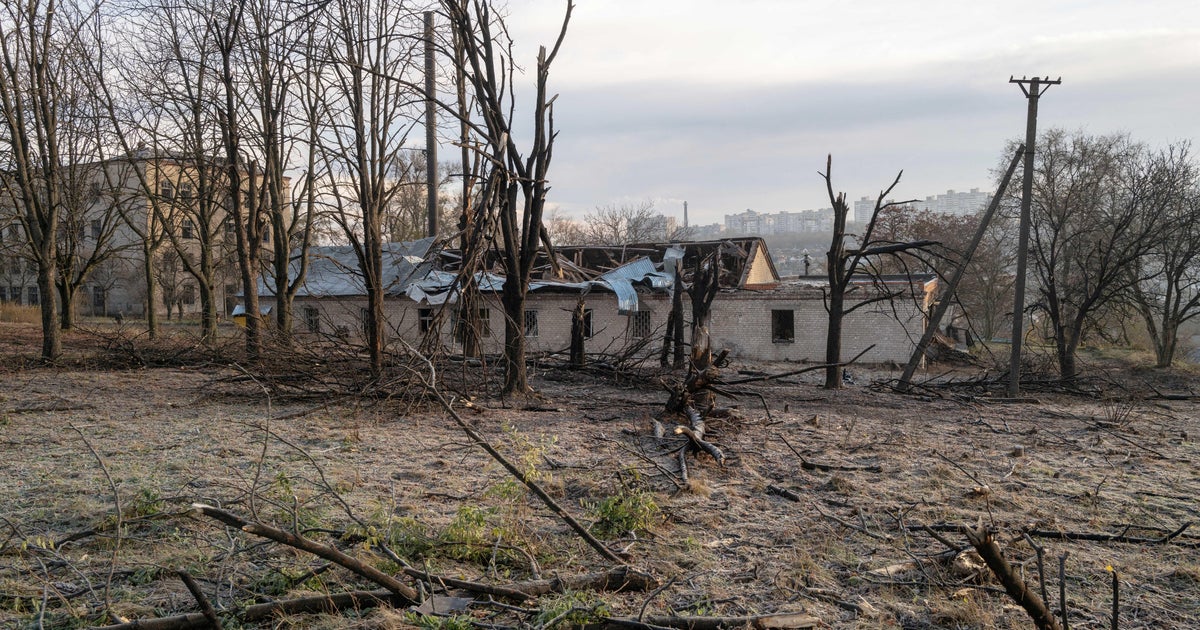U.S. launches operation targeting migrant-smuggling gangs
The Biden administration has launched a multi-agency operation targeting human smuggling organizations, part of its ongoing response to a recent influx in migrants arriving at the U.S.-Mexico border.
"Operation Sentinel," a joint mission by the Department of Homeland Security (DHS), State Department and Department of Justice, will target criminal gang members, aiming to disable transnational criminal groups by cutting off their sources of funding and making it more difficult for them to travel.
DHS Secretary Alejandro Mayorkas outlined plans Tuesday to curb human smuggling operations by revoking travel documents, suspending trade entities and freezing bank accounts and financial assets tied to criminal networks.
"With the help of our federal and foreign partners, we aim to cut off access to that profit by denying these criminal organizations, the ability to engage in travel trade and finance in the United States," Mayorkas said during a press call with reporters, Tuesday. "We intend to disrupt every facet of the logistical network that these organizations use to succeed."
In fiscal year 2020, the U.S. Border Patrol (USBP) identified 250 migrants who died during their journey to the U.S. In 2019, agents across the southwest border found at least 300 unidentified human remains, the highest number since 2016.
"CBP routinely rescues migrants who have been abandoned by these smugglers in harsh terrain, leaving them for dead with no food or water," Custom and Border Protection (CBP) Acting Commissioner Troy Miller said, Tuesday. According to Miller, border patrol agents have already rescued 4,766 migrants along the southwest border in Fiscal Year 2021. In 2020, agents rescued 5,232 migrants total.
Warning criminal organizations, Miller added, "As I speak today, we are revoking your visas to enter the United States and those who associate with you. We are suspending your ability to engage in any trade with the United States Government. And we will be freezing money you are using to smuggle people into our country." Miller called Tuesday's announcement "only the beginning" of a months-long operation.
Acting ICE Director Tae Johnson said the agency initiated over 1,000 human trafficking and forced-labor-related investigations in FY 2019, leading to 2,197 criminal arrests and 700 convictions. As a result, ICE officers rescued more than 400 victims, Johnson said.
Earlier this month, CBP released a video showing alleged smugglers "viciously" dropping two young children over a 14-foot-high border barrier in the New Mexico desert, according to officials. A Border Patrol agent using camera technology observed a smuggler dropping two girls – sisters ages 3 and 5 from Ecuador – from the top barrier, just west of Mt. Cristo Rey, authorities said. After both children landed on the ground, footage showed the smuggler and a companion fleeing and abandoning the girls on the north side of the international boundary line.
In February, 9-11 dispatchers fielded a "heartbreaking" call from a man who said he and 80 other migrants were trapped in the back of a tanker truck and struggling to breathe. The cry for help prompted a massive search outside San Antonio, Texas, and an ICE investigation that led to one arrest. Authorities have not disclosed the outcome of the ongoing investigation, but an ICE spokesperson told CBS News one individual was taken into custody in relation to the alleged incident.
In some ways, the new operation mirrors the 2014 efforts by DHS and the Treasury Department's Financial Crimes Enforcement Network, or FinCEN, to target suspicious patterns of deposits and withdrawals through "funnel accounts" found within U.S. banks.
But Mayorkas called Operation Sentinel "broader in scope" than the Obama administration actions, citing newfound cooperation with a slew of additional U.S. agencies including CBP, ICE's Homeland Security Investigations, U.S. Citizenship and Immigration Services (USCIS) the State Department, the Federal Bureau of Investigation (FBI) and Drug Enforcement Administration (DEA). The DHS chief added that partnership with "foreign neighbors" would also be a "critical component" of the mission.
"As we work with the countries of Central America, and with Mexico to address the long-term issues causing people to leave their homes, we will target those who profit from misery," Assistant Secretary for the Bureau of Consular Affairs at the U.S. State Department Ian Brownlee told reporters. He said, "Applicants are continuously screened, both at the time of their application and afterwards to ensure they remain eligible for travel to the United States."
Pressed about a Trump-era rule that has allowed just 0.3% of those processed under it to seek refuge, Mayorkas stated the Biden administration planned to keep the public health authority found in Title 42 of the U.S. code intact until it is no longer needed. He also told reporters that while Title 42 is mandated by the Centers for Disease Control (CDC), DHS is responsible for ensuring "public health through the tools at our disposal."
Former migration experts at the CDC refused to be involved in the expulsions order, believing there was no sound public health rationale to suspend immigration and asylum laws at the U.S.-Mexico border, former officials at the agency told CBS News.
Despite campaign promises to restore U.S. asylum practices, the Biden administration has expelled tens of thousands of migrants, including families with children. Asked about the federal government's prioritization of human smuggling campaigns following outrage over its decision to keep the current historic-low cap on refugee admissions, Mayorkas reasoned the Biden administration is focused on addressing the "root causes" of migration. The secretary added that the U.S.sees a "humanitarian obligation" in addressing transnational criminal organizations at the U.S.-Mexico border.
On Monday, the Biden administration agreed to help train a Guatemalan task force charged with securing its border, part of Vice President Kamala Harris's goal to address the "root causes" of migration.
Christopher Brito contributed to this report.



